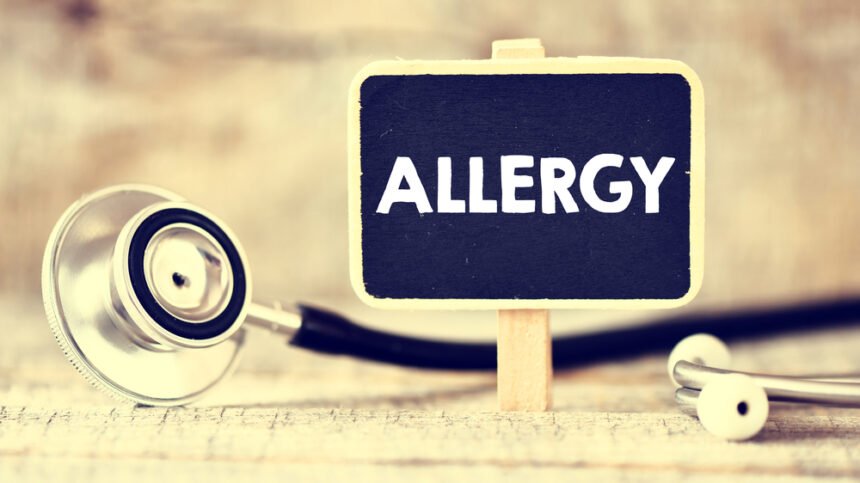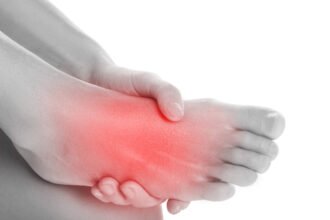Whether you live in the countryside or in the heart of a big city, you may experience the onset of seasonal allergies and allergic reactions to certain pollutants, animals, fungi, and more. Allergic reactions are simply an immune response to an allergen, but are heavily affected by the environment which you live and work in.
Pollution in the Big City
Air pollution is a growing problem in our ever more industrialized civilization. Factories, vehicles, and other industrial processes release chemicals into the air, dropping air quality and creating that haze you see over a big city in the morning, referred to as “smog”.
Many people experience allergies due to pollen or pet dander, but if you live in the heart of a big city, you get twice the irritants. Thousands of vehicles drive the streets every day, each one releasing C02 into the air as long as its running. The city usually contains industrial zones, where factories release waste products into the air and water, many of them harmful or irritating to humans.
Mold in Homes And Businesses
A major cause of allergies for many people is actually mold. Mold is a fungi that grows in damp places. We’ve all seen the black mold around the tub, sink, or toilet, or that fuzzy green stuff on a slice of bread. Mold can cause a histamine response in certain people, and the trouble with mold is that it affects everyone quite differently. What one person is allergic to the next person may have no reaction to at all. Older buildings may have mold in the basement or under the floors, and the owner may never know about it. This can cause your typical allergic reaction symptoms, and some mold allergies can prove fatal.
Your Pets Might be the Cause of Your Allergies
Some people actually have a pet allergy and don’t realize it. To truly determine if you’re allergic to pets requires an immunologist to do a blood test. Dogs and cats have certain proteins in their hair that cause an immune response in a percentage of the population. If you live with one or more pets, you might not even realize that they’re actually causing your runny nose and itchy eyes.
Fresh Air Really Does Matter
Let’s be honest; if you’re looking for fresh air, you don’t move to a big city like Los Angeles or New York. Living in a rural community doesn’t just offer better scenery, it also can help with your allergies. While allergies can still affect rural people, they aren’t exposed to as many harsh chemicals and unnatural pollutants in the air.
Plants have a special purpose in our lives; they create clean, rich oxygen for us to breathe. In the heart of the big city, there’s a lack of plants creating fresh oxygen. The oxygen that does exist there is often tainted with pollutants and unnatural chemicals, and the lack of plants means there’s no natural filters to help purify it. Fresh air is essential to clearing out those sinuses and airways, and keeping your irritation to a minimum.
But Wait, There’s More!
Fresh air might be a good idea, but remember that the more plants you have around, the more pollen you’re exposed to. Those with pollen allergies living in rural areas are subjected to many different types of pollen, at much higher volumes. The same plants that create our fresh air also add to the allergy problem. Pollen production is a plant’s way of reproducing, and so a necessary addition to the ecosystem; however unwelcome it may be to us humans.
So Which Is Better?
Finding the right environment is key to allergy management. First, you need to identify what you’re allergic to. Is it ragweed? Pet dander? Do your allergies symptoms worsen when you’re in the heart of your city? Each person is different and each allergen affects them in a different way. One person may be allergic to ragweed and the other is completely unaffected.
If you’re seriously considering moving, research the area you want to move to. Find out things like what types of pollen are in the area, whether or not there’s an industrial area nearby, and so on. Look up your city’s regulations on pollutants, find out which pollens are prominent in your area or the area you wish to move to. Research and prevention are always preferable to unwanted exposure and irritation.
Conclusion
Big cities usually aren’t allergy friendly. All the excitement of the hustle and bustle of everyday life is the very cause of many allergy problems. Vehicles and industrial zones pump chemicals into the air, while the lack of plants means the air is not getting filtered and turned into fresh oxygen. On the other hand, moving to the countryside means higher exposure to plants, and therefore more pollen and fungal allergens.
Wherever you choose to live remember that allergens exist everywhere, but the data does exist on where and how concentrated they are. With some research, and a little help from your doctor, finding the right information and making the most beneficial choice doesn’t have to be an ordeal. Many municipalities have to follow environmental regulations, which controls the amount of pollutants that go into the air and water.
A simple allergy test can determine what specific irritants your body reacts to, and may be able to help you decided what type of environment you want to live in.










